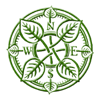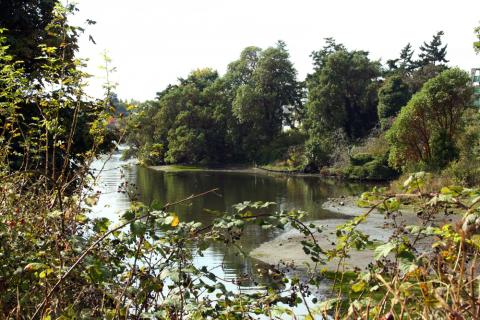Portage Inlet Intertidal Mud Flats
At the mouth of Craigflower and Colquitz Creeks in Portage Inlet is an intertidal mud flat, an important coastal ecosystem and valuable habitat for many species of wildlife. Mudflats provide good conditions for the growth of eelgrass, and eelgrass in turn hosts an array of animals including herring, crabs, snails and juvenile salmon. Invertebrates such as nematode worms and protozoa feed on bacteria prevalent in the mud, and larger organisms such as crustaceans (e.g. amphipods, mud shrimp), mollusks (e.g. clams, snails, native oysters) and polychaete worms feed on decaying plant and animal matter that the bacteria breaks down. Moving up the food web, small fish and birds prey on crustaceans and mollusks, and these fish are preyed upon by larger fish, birds of prey, seals and otters. Some of the many types of shorebirds found in mud flats include sandpipers, plovers, Lesser Yellowlegs, snipes, Longbilled Curlew, Short-billed Dowitcher, and Common Snipe. Great Blue Herons may also be seen stalking fish in the shallows.


- Log in to post comments
- 7928 reads

